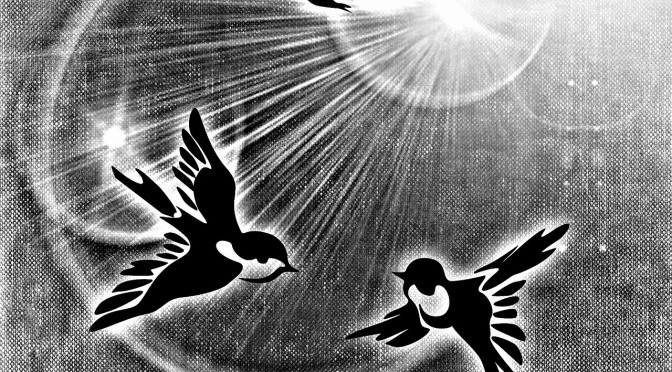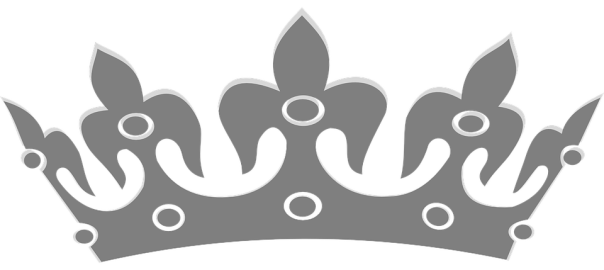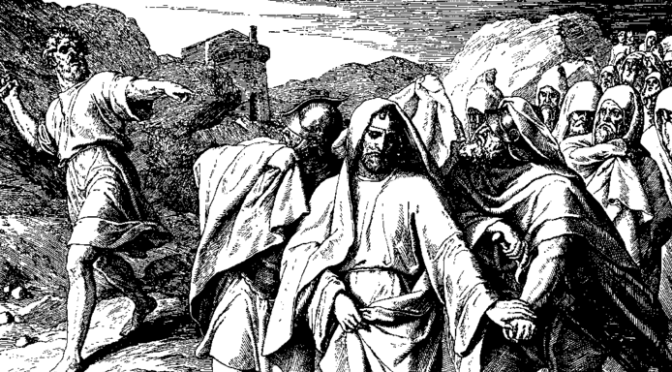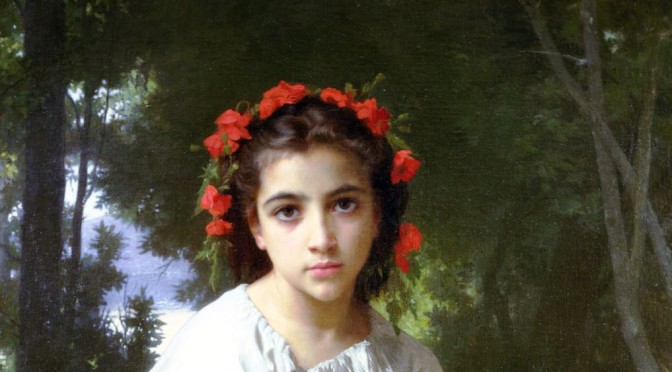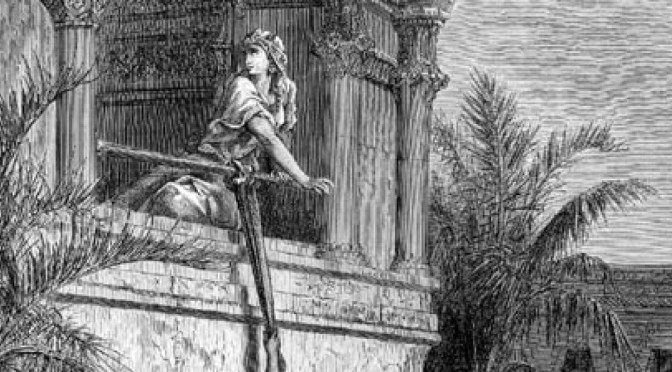Some say David betrayed Michal by leaving her behind, and others say Michal was okay with marrying Phalti. Some of the latter go beyond that and say she could have escaped.
I found more fault with David because he saved two other wives on the run (1 Samuel 30) Why couldn’t he save her? But Michal had proved herself clever in the past. So why didn’t she find a way out?
I’m excited to say I found the answer—it was too unsafe.
Just how unsafe would be a rescue mission? The answers are found in the short verses that give Phalti a description—and some follow up examination.
“But Saul had given Michal, his daughter, David’s wife, to Phalti the son of Laish, which was of Gallim.” (1 Samuel 25:44)
In order to make Michal disappear from David’s life, Saul gave his daughter to someone in a geographic area he could trust.
Let’s examine this “Phalti son of Laish, which was of Gallim.”
Michal was given to man loyal to Saul. His name and the locations point toward him being a Benjaminate since he resided in Benjaminite territory.
Laish is the name of land that the prophet, Isaiah, associated with Gallim(Isaiah 10:30). “Lift up thy voice, O daughter of Gallim: cause it to be heard unto Laish.”
Phalti was either native to the land of Laish or his father shared or gave his name to the territory. Gallim is thought to belong to the tribe of Benjamin and north of Jerusalem. (To see a map and more information take a look at http://bibleatlas.org/laishah.htm)
“And her husband [Phalti] went with her along weeping behind her to Bahurim.” (Samuel 3:15-16)
This description of Phalti occurs when Michal returns to David.
Though some of David’s mighty men hailed from Bahurim (2 Sam 23: 31), David preferred to stay alive. Any association with David, and your life was in danger. A woman had to hide two of David’s messengers there. (2 Samuel 17:18)
The time David did venture into Bahurim was years later and he was now king of Israel. Still, he didn’t get respect.
“And when king David came to Bahurim, behold, thence came out a man of the family of the house of Saul, whose name was Shimei, the son of Gera: he came forth and cursed still as he came.” (2 Samuel 16:5)
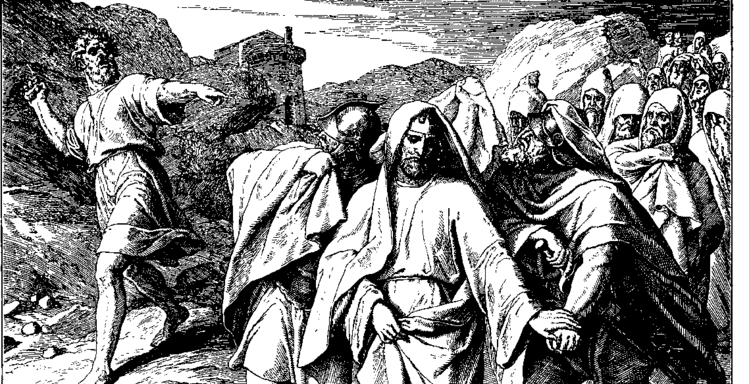
Shimei throwing stones at King David in Bahurim.
David kept his peace and pardoned Shimei (then) for downright treason. Shimei threw stones and made piecing remarks at David’s dysfunctional family. David was lucky enough not to be assassinated. He probably would have been killed by Saul’s men when Saul was king, and he wouldn’t have been able to reach Michal.
Conclusion
David wanted to please the Lord and fulfill his calling by becoming king of Israel. Sadly, that prevented him her from rescuing Michal. Michal might have realized this, but she still had to stay alive in order for David to fulfill his calling—a huge act of faith on her part.
Michal probably experienced more pain than the reader can imagine when she found about David rescuing his two other wives. But living in such a guarded place prevented her from successfully running away. Maybe she tried, but it wouldn’t have worked. It would have been hard to make allies in a land so loyal to Saul. It’s very likely Saul had spies. He surely received reports of events.
David would have been committing suicide if he went as a fugitive to rescue his wife. It’s possible he sent some men there. If that happened, though, they would have been killed. Even after Saul died, there was a war between the houses of David and Saul. David and Michal were powerless to reunite with each other. Michal and David were united as soon as it was possible.

Notes:
Bible: King James Version.
For the summary of Michal’s storyline, click here.
Image:
Woodcut for “Die Bibel in Bildern”, 1860. By Julius Schnorr von Carolsfeld .

